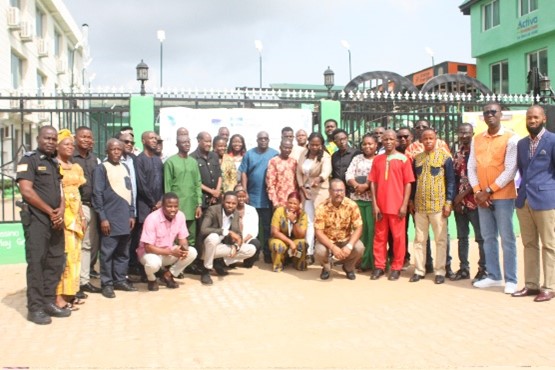Liberia, a nation recognized for its rich biodiversity encompassing expansive rainforests, endangered species, and diverse ecosystems, is taking proactive steps to safeguard its natural heritage. In collaboration with the United Nations Development Programme (UNDP) and with funding from Sweden, the Environmental Protection Agency (EPA) of Liberia convened a two-day workshop in Ganta City, Nimba County, focused on validating the National Biodiversity Strategy and Action Plan (NBSAP). This workshop, a crucial component of the Community-Based Forest Management (CBFM) project, aimed to refine the draft NBSAP, including its communication strategy, implementation plan, and monitoring and evaluation framework. The collaborative effort brought together diverse stakeholders representing government ministries, NGOs, community groups, academic institutions, and international development partners to ensure the plan effectively addresses Liberia’s biodiversity conservation priorities. The NBSAP is designed to serve as a guiding document for the sustainable management and conservation of Liberia’s biodiversity, aligning with the Convention on Biological Diversity (CBD) and the Sustainable Development Goals (SDGs).
The validation workshop served as a vital platform for stakeholders to review, discuss, and align the draft NBSAP with Liberia’s specific biodiversity needs and broader development objectives. The collaborative approach ensured diverse perspectives were integrated, creating a plan that reflects the realities and aspirations of all Liberians. This inclusive process acknowledges the intricate relationship between biodiversity conservation and sustainable development, recognizing that protecting natural resources is essential for the well-being and prosperity of the nation. The workshop focused on finalizing three key strategic documents: the NBSAP Implementation Plan, the Monitoring and Evaluation Framework, and the Communication Strategy. These documents will collectively underpin Liberia’s renewed commitment to halting biodiversity loss, fostering sustainable ecosystem management, and ensuring equitable benefit-sharing of genetic resources.
Dr. Emmanuel K. Urey Yarkpawolo, EPA Executive Director, underscored the workshop’s significance as a major stride towards environmental sustainability. He emphasized the crucial role of Liberia’s biodiversity, particularly its Upper Guinean rainforests and coastal ecosystems, in supporting livelihoods and overall national well-being. However, he also acknowledged the pressing threats these ecosystems face due to deforestation, habitat loss, illegal wildlife trade, and climate change. Dr. Yarkpawolo expressed gratitude for the support from UNDP and the Swedish government, highlighting the importance of collective ownership and alignment of the NBSAP with international initiatives like the Kunming-Montreal Global Biodiversity Framework (GBF) and national development agendas such as the ARREST agenda.
Dorsla D. Farcarthy, UNDP Team Leader for Inclusive Growth & Sustainable Development, echoed the importance of Liberia’s rich biodiversity, noting its extensive forest cover. He emphasized the urgent need to address challenges such as deforestation driven by commercial logging, agricultural expansion, and unsustainable land use, all of which threaten the nation’s natural resources and the communities that depend on them. Recognizing the reliance of many rural communities on subsistence farming and forest resources, Mr. Farcarthy advocated for sustainable economic alternatives to balance the needs of local populations with conservation goals. He further stressed the urgency of implementing a robust conservation strategy, emphasizing the need for greater integration of environmental sustainability into public discourse and policy, especially given the projected increase in temperatures and environmental challenges facing Liberia in the coming decade.
The workshop brought together a diverse array of participants, including representatives from various government ministries – the EPA, Forestry Development Authority (FDA), Ministry of Agriculture, Ministry of Finance and Development Planning, Ministry of Mines and Energy, Ministry of Justice, Ministry of Local Government, Ministry of Health, and the National Fisheries and Aquaculture Authority (NaFAA). The inclusive approach extended to academic, research, and civil society organizations, alongside development partners like UNDP and FAO. Importantly, the workshop ensured representation from the private sector, local communities, women’s groups, and youth organizations, underscoring the importance of engaging all stakeholders in the process of biodiversity conservation and sustainable development.
The two-day validation workshop stands as a testament to Liberia’s dedication to sustainable biodiversity conservation. By fostering collaboration among diverse sectors and incorporating local knowledge, the initiative aims to protect the country’s invaluable natural heritage for present and future generations. The NBSAP, once finalized, will serve as a roadmap for navigating the complex challenges of balancing economic development with environmental protection, ensuring that Liberia’s rich biodiversity continues to thrive. The workshop highlighted the interconnectedness of conservation efforts with national development goals, recognizing that a healthy environment is fundamental to the long-term prosperity and well-being of the nation.














